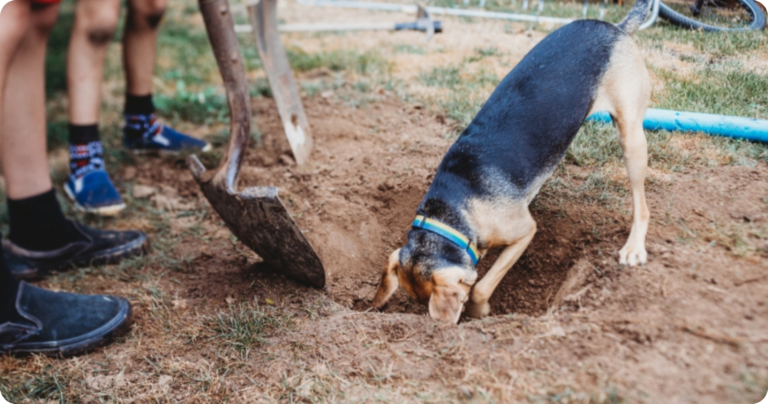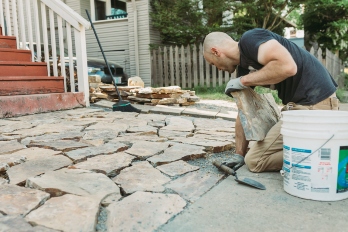Here’s a list of the seven most common household pests and tips to deal with them:
Rodents
Mice, rats, and squirrels … yeesh! These furry little tenants usually come in search of food, water, or warmth. They tend to nest in walls, ceilings, attics, and other hard-to-reach places. One of the biggest challenges with rodents is the number of offspring they produce. The common mouse can give birth to up to 60 little ones in a lifetime.
Rodents can also carry diseases and other pests in their fur, such as fleas and ticks. They can also contaminate food and damage wiring and drywall.
Tips: To ward them off, properly store food and close all openings to your home’s exterior. And if you’re already having problems, you can try traps or poison, though it may be best to call in a pro.
Termites
Known on the streets as “the silent destroyers,” termites can do serious damage. They often nest in stumps or fallen trees before coming inside. Like tiny, destructive ninjas, they’re good at sneaking in undetected and burrowing beneath siding to get to the wooden frame of your home.
Swarms of winged insects, wood that sounds hollow when you knock on it, or small mud tubes on walls, beams, or in crawlspaces can be termite warning signs.
Tips: Prevent infestations by removing moisture problems like leaks or clogged gutters and by keeping firewood, lumber, stumps, and debris away from your home. An annual or bi-annual termite inspection is a good idea, especially if you live in the Southeast. If you discover an infestation, call a pest control pro right away!
Fleas
The vampires of the pest world, fleas feed on the blood of humans or animals. While they can enter a home on rodents, they’re most likely to catch a ride on your dog or cat. Once inside, they hang out in rugs, furniture, or cracks in the floor. Flea bites can cause itchiness and allergic reactions. Worst case scenario, they can make you or your pet sick by transferring illnesses.
Tips: Since dealing with a flea infestation can be difficult, prevention is the best course of action. Protect your pets with flea treatments and keep your yard tidy and dry. If you already have a flea infestation, try over-the-counter treatment products or hire a pest expert to handle it for you.
Hornets and wasps
Like your grumpy neighbor, hornets and wasps have a short temper. But instead of shouting and waving their cane, they tend to divebomb and sting. Roof overhangs, eves, gutters, windowsills, trees, and hedges are prime real estate for these buzzy insects. While their damage to your home is likely to be minimal, their presence can make maintenance and yardwork a challenge. Their stings are painful and can be dangerous for those with allergies.
Tips: Hornets and wasps like to eat, so keep your trash covered and outdoor cooking spaces clean. If you discover a nest, it’s best to remove it ASAP to prevent stings. Insecticides designed for hornets and wasps work well, though make sure you follow the directions and take precautions. You can also hire a pest control service to get rid of them for you.
Cockroaches
The quintessential household pest, cockroaches are often associated with the idea of dirty spaces. Truthfully, they can be a problem in clean homes, too. Even a small amount of accessible food can become an attraction. They can also get inside your home for reasons other than food. Often, they arrive as stowaways on items brought in from outside.
Beyond the creepy-crawly factor, cockroaches are known to carry bacteria such as E. coli and Salmonella. And though they’re one of the most common household pests, they’re one of the hardest to get rid of. They’re expert hiders, they reproduce quickly, and they’re extremely adaptable.
Tips: Over-the-counter pesticides can sometimes do the trick for smaller infestations, but chances are you’ll need to call in a pro.
Spiders
Have you ever heard that the average homeowner swallows 8 spiders a year while sleeping? Luckily, this old myth isn’t true. But that doesn’t mean you’re not sharing your home with more than a few eight-legged tenants. Spiders enter homes for the usual reasons: food, warmth, mates, or moisture. They get in through cracks, under doorways, and as stowaways on objects from outside, like firewood.
Fortunately, most spiders aren’t a danger to your home or health. On the contrary, they can help you eliminate the presence of other insects inside your home. If you’re seeing a lot of spiders, it could indicate you have other bug problems.
Tips: If you’re not comfortable keeping spiders as housemates, over-the-counter pesticides can get rid of them. Or you can try a natural repellant like peppermint, lemongrass, citronella, or rosemary essential oils.
Ants
Ants infiltrate your home looking for one thing: Food. Dirty dishes or countertops, crumbs, food in your trash, and open food containers can draw them in. Once they’re in, they create a scented trail using pheromones that tells other ants where to go for a snack. Though ants usually nest outside in your lawn, in tree stumps or fallen trees, they can nest in walls or ceilings.
Ants typically aren’t a major risk for your health or home, though they can carry bacteria. Some species bite, while others can damage your home’s woodwork. Generally, they’re just a nuisance and unpleasant surprise to find floating in your maple syrup.
Tips: If you have an ant problem, try ant traps or a natural solution like white vinegar, which kills and repels them. Seal entry points around doors and windows, and clean areas where you’ve seen ants to get rid of their pheromone trails.
Pests in general
A little bit of prevention goes a long way. If you get in the habit of properly storing food, regularly inspecting your home for access points, and taking care of small pest problems before they grow, you’ll be able to sleep at night knowing cockroaches aren’t hosting poker night in your kitchen.
For more tips to keep your home safe, check out these posts:






